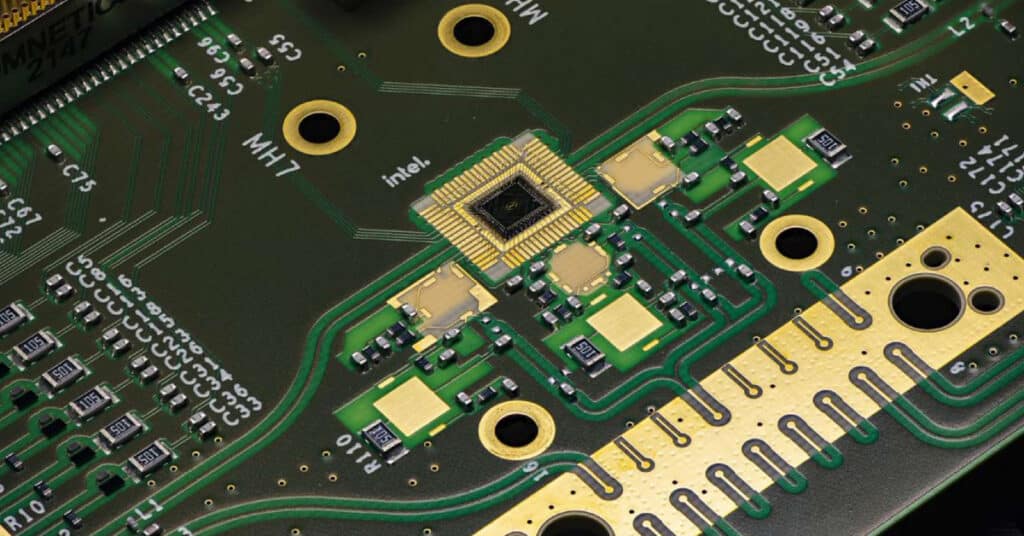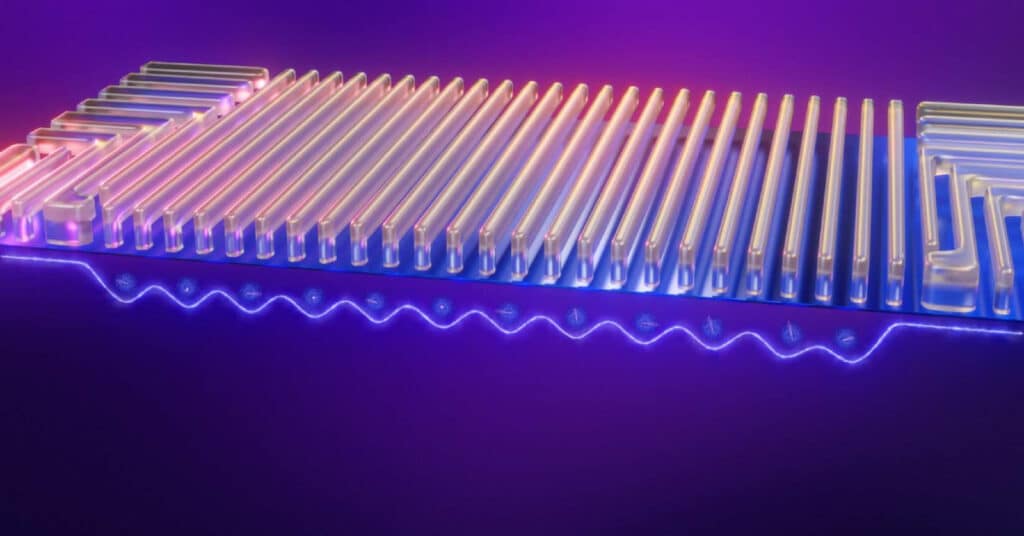Intel, on Thursday, June 15, announced the release of its newest quantum research chip, Tunnel Falls, a 12-qubit silicon chip, and is making the chip available to the quantum research community.
In a strategic partnership, Intel is also joining forces with the Laboratory for Physical Sciences (LPS) at the University of Maryland, College Park’s Qubit Collaboratory (LQC), to drive further innovations in quantum computing.
Academic institutions lack high-volume equipment for fabrication, says Intel. With Tunnel Falls, researchers can immediately begin working on experiments and research instead of fabricating their own devices.
This accessibility paves the way for a broader range of experiments, facilitating a deeper understanding of qubits and quantum dots. It also facilitates the development of novel techniques for multi-qubit devices.

Tunnel Falls: First silicon spin qubit
Tunnel Falls is Intel’s first silicon spin qubit device fabricated on 300-millimetre wafers at the D1 fabrication facility.
Intel says the 12-qubit device leverages the company’s most advanced transistor industrial fabrication capabilities such as extreme ultraviolet lithography (EUV) and gate and contact processing techniques.
In silicon spin qubits, information (the 0/1) is encoded in the spin (up/down) of a single electron. Qubit devices are essentially a single electron transistor. This allows the US firm to fabricate it using a similar flow to that used in a standard complementary metal oxide semiconductor (CMOS) logic processing line.
The company believes silicon spin qubits are superior to other qubit technologies because of their synergy with leading-edge transistors. Being the size of a transistor, they are up to 1 million times smaller than other qubit types. They measure approximately 50 nanometers by 50 nanometers. This allows for efficient scaling.

Democratising silicon spin qubits
To bridge the gap between academia and industry, the companyhas collaborated with the University of Maryland’s LQC through the Qubits for Computing Foundry (QCF) programme in association with the US Army Research Office.
This partnership aims to democratise silicon spin qubits and facilitate a hands-on experience with scaled arrays of these qubits for researchers.
The first quantum labs to participate in the programme include LPS, Sandia National Laboratories, the University of Rochester, and the University of Wisconsin-Madison.
LQC will work alongside Intel to make Tunnel Falls available to additional universities and research labs.
Moving forward, the company will work to improve the performance of Tunnel Falls and integrate it into its full quantum stack with the Intel Quantum Software Development Kit (SDK).
In addition, the company is already developing its next-generation quantum chip based on Tunnel Falls, which is expected to be released in 2024.
Jim Clarke, director of Quantum Hardware, Intel, says, “Tunnel Falls is Intel’s most advanced silicon spin qubit chip to date and draws upon the company’s decades of transistor design and manufacturing expertise. The release of the new chip is the next step in Intel’s long-term strategy to build a full-stack commercial quantum computing system. While there are still fundamental questions and challenges along the path to a fault-tolerant quantum computer, the academic community can now explore this technology and accelerate research and development.”










01
From telecom veteran to Dutch Startup Visa success: The Jignesh Dave story